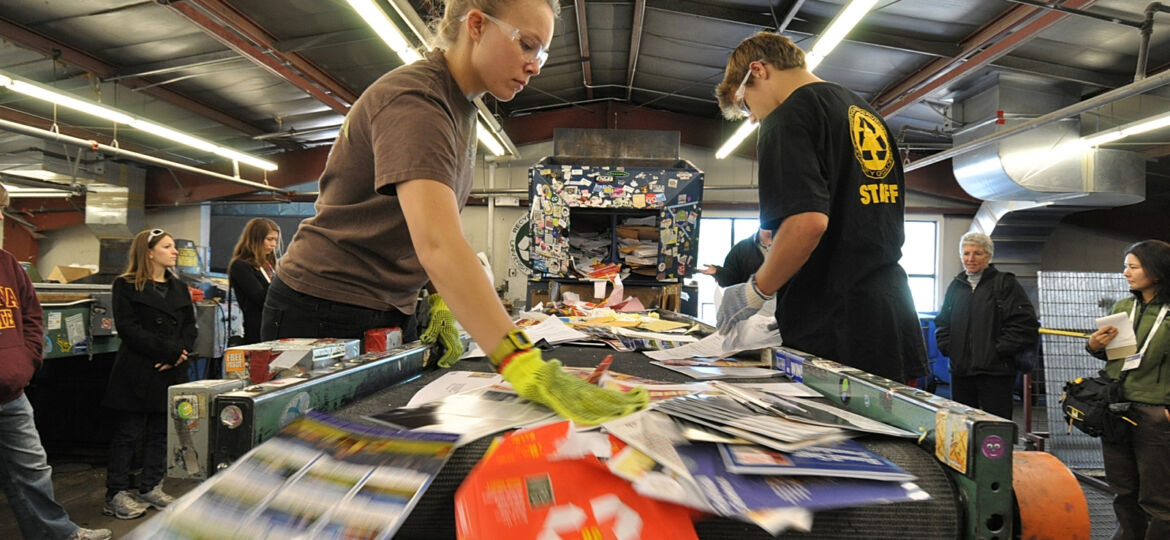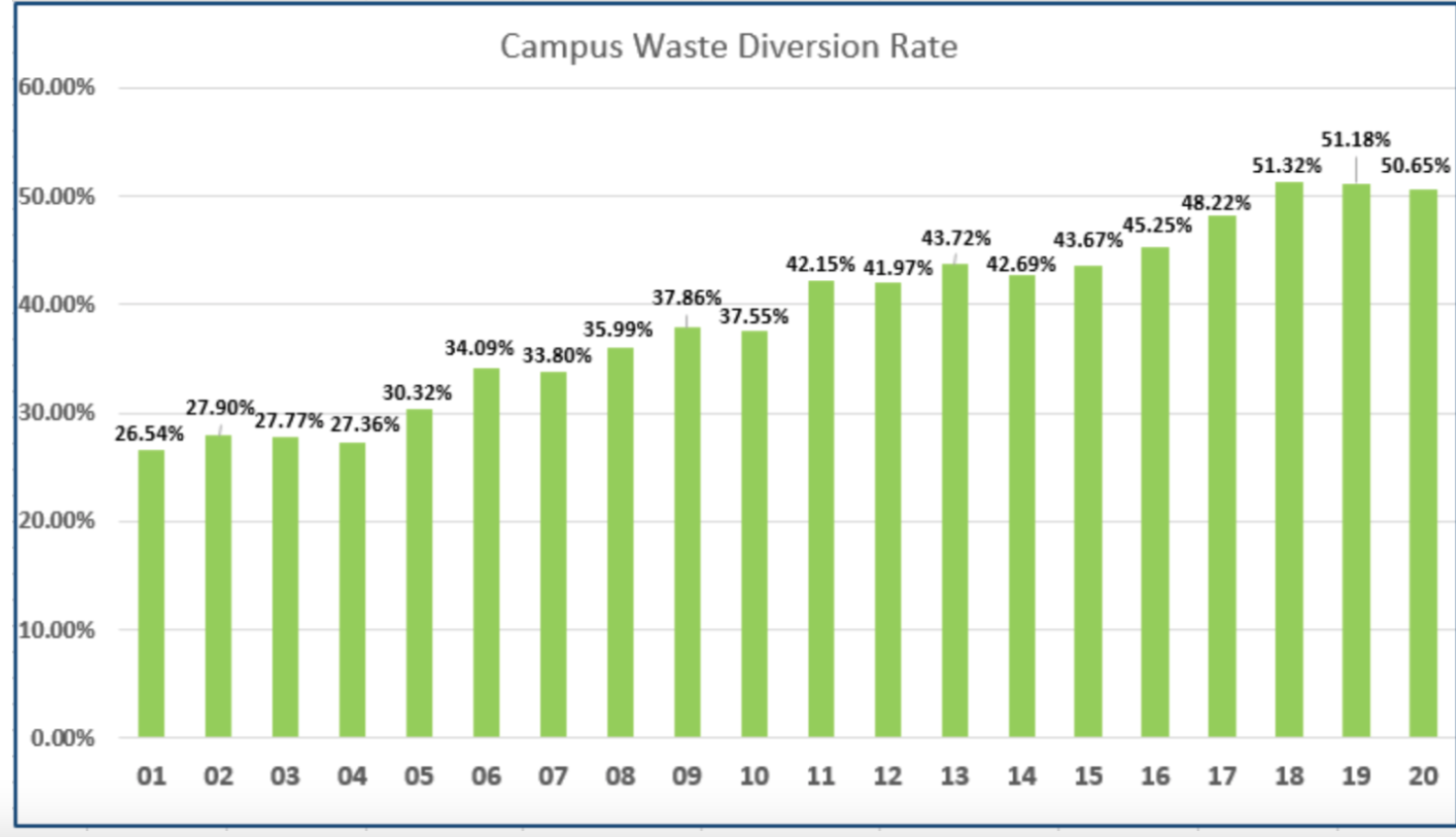
CU Boulder strives to become an eco-friendlier campus each year

With the increased pressure to acknowledge and counteract the impact of climate change, private and state-funded universities are becoming increasingly aware of their waste and recycling habits. But what exactly is the University of Colorado Boulder doing to have a cleaner and more environmentally friendly campus?
The waste management service is important to CU Boulder’s sustainability practices. Their mission is to make the University a zero-waste campus, which means 90% of the campus’ trash and recyclables do not go to a landfill. Carl Pierce, manager of the solid waste and recycling operations at CU Boulder, said the University is “one of the only few campuses in the United States that have an in house recycling and solid waste collection.”
The Zero Waste program helps students understand where you can recycle on campus, what is recyclable and what isn’t recyclable to help students understand how they can create a more sustainable environment. CU Boulder’s campus also hosts 50 zero-waste events across campus through sports, and move-in days. While also having labeled trash, recycling and compost bins across Boulder’s campus.
“CU is sort of like a little small city within the town of Boulder, and it’s important that we teach the users on campus that come from many different places what’s recyclable here,” Pierce said.
The University conducted an analysis in 2020 to breakdown their role in reuse, recycling, composting and landfill statistics. The data shows a 16.1% decrease in overall campus generation (943 tons), a 15.2% decrease in landfilling (435 tons), and a 17% decrease (508 tons) in materials diverted from being burned or sent to landfills. Ralphie’s Green Stampede, which is the nation’s first zero-waste athletics program, diverted 43.5 tons during the 2019 season, the second-highest total in the past 10 years.

CU Boulder also has calculated its annual impact on the environment, with 2,900 tons of recycling and compost diverted from landfills, 5,000 bikes repaired, 2.7 million student bus trips and 200 off-campus ECO-Visits in student residences. An example of these efforts is the Pac-12 zero waste competitions. During each football and basketball season, Pac-12 campuses compete with each other in pursuit of a zero waste home game in each season. Zero waste is an effective tool to fully engage the athletes, faculty, staff, students, fans and the community at the athletic venue to show active commitment to zero waste and sustainability. The zero waste competitions have continued to grow and is now in its fourth year with all Pac-12 campuses participating.
Campuses are already working with partners and sponsors like Nissan, Toyota, Stopwaste, BASF, Eco-products, Pepsi, Levy Restaurants, Renew Merchandise, Ecosafe, Vegware and Max-R to further add zero waste and sustainability as assets to their marketing portfolio.
Compared to other Pac-12 institutions, the CU Boulder, UC Berkeley and Ohio State University are great examples of where they have taken leadership in zero waste goals and then added value with their partners and sponsors through their existing marketing efforts. In the 2019-20 challenge in football, CU received first place with an 86.33% diversion rate, with UC Berkeley winning the most improved.
Another of CU’s programs on campus is the Environmental Center—which partners with the Facilities Management Office of Sustainability, Facilities Management, as well Housing & Dining Services—that aims to deliver sustainability operations and outreach for the campus community of CU Boulder.
Sustainability doesn’t end when students leave campus. With the majority of students living off-campus,organizations like Green Greeks intend to reduce the carbon footprint of Greek housing.
“We will try and push for each house to complete an assessment to take note of the issues: through the environmental center we can provide things like low flow showerheads or LED light bulbs, compost and recycling bins,” said Green Greeks President Riley Jenkins.
To help people become more aware of their waste and the importance of sustainability, Jenkins recommends starting small, such as gathering and assessing the amount of waste that one individual produced in a certain amount of time.
“Something I sometimes encourage is to take a week or two where everything you do and everything you use is disposable—so a paper plate a plastic fork—and collect it in trash bags and compare that to what it would be like to just use a couple of plates that can go in the dishwasher and a couple of forks that can go into the dishwasher,” said Jenkins.
Similar to Jenkins, Pierce thinks that practicing sustainability believes that if students at CU Boulder put in the effort, it will be worth it in the long run for our planet, and for our campus.
“Take the time to recycle, and if you have any questions, let us know,” said Pierce. “We are happy to educate; we would like to see more students that care.”

